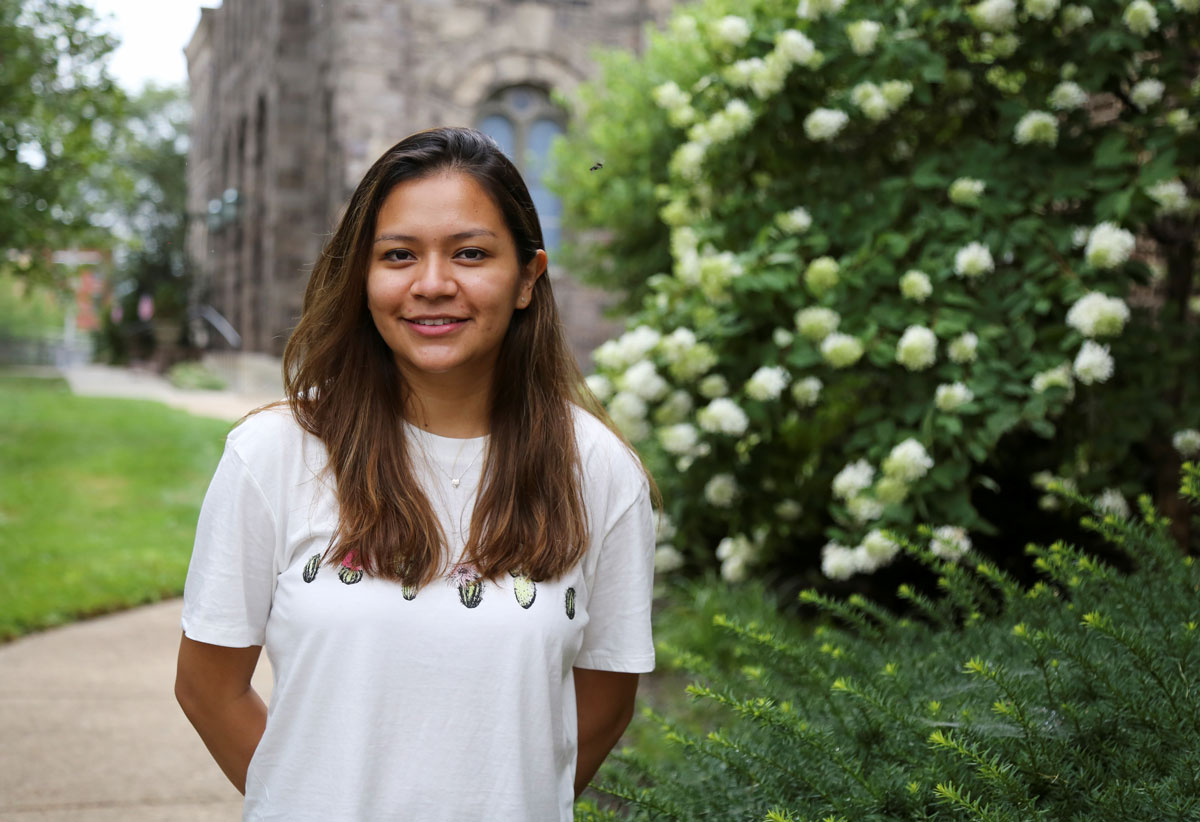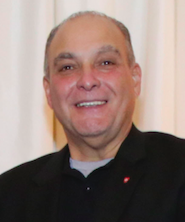Young immigrant asserts her right to be here
 As an undocumented immigrant, there’s a long list of things Darling Cerna can’t do.
As an undocumented immigrant, there’s a long list of things Darling Cerna can’t do.
When she was a teenager, she could only sit on the sidelines as she watched her friends excitedly get their driving permits and first jobs. When it came time for college, she couldn’t get state financial aid to help pay tuition. For the past decade, she couldn’t leave the country, because without papers, she can’t return. She can’t vote. Even getting a mortgage and a credit card can be out of reach.
“It can make you feel like you’re no one,” she said of her undocumented status.
Darling came to the U.S. legally. When she was just 5, she and her parents fled poverty and violence in Guatemala and immigrated here on a 10-year visa. But they overstayed their visa, throwing the family into undocumented status.
So when the Obama administration enacted the Deferred Action for Childhood Arrivals (DACA) in 2012, Darling didn’t hesitate to apply. The policy, renewable every two years, defers deportation for undocumented immigrants brought to the U.S. as children and authorizes them to work.
Like a family
 Staff at Catholic Charities, Diocese of Trenton’s El Centro program, which has served the Latino community in Greater Mercer County since 1999, helped Darling through the process. El Centro also offers English classes, job training, parenting classes, basic needs services, trauma counseling, after-school programs and summer camps for children, and case management to address all of a person’s needs. It’s also authorized by the U.S. Department of Justice to provide legal assistance to help immigrants achieve citizenship and naturalization. And El Centro has been a lifeline for many families through the ongoing pandemic by remaining open and fully operational, Director Roberto Hernandez (pictured, right) said.
Staff at Catholic Charities, Diocese of Trenton’s El Centro program, which has served the Latino community in Greater Mercer County since 1999, helped Darling through the process. El Centro also offers English classes, job training, parenting classes, basic needs services, trauma counseling, after-school programs and summer camps for children, and case management to address all of a person’s needs. It’s also authorized by the U.S. Department of Justice to provide legal assistance to help immigrants achieve citizenship and naturalization. And El Centro has been a lifeline for many families through the ongoing pandemic by remaining open and fully operational, Director Roberto Hernandez (pictured, right) said.
“El Centro has been amazing. They’re always incredibly helpful,” said Darling, 25, who lives in Trenton. ”They become so invested in the people they help that it’s almost like a family. They know everyone by name, and you never feel like a burden.”
Hopes for immigration reform
Getting her DACA approval was a relief, she said, because “you have a document that proves you have the right to be here.”
Still, DACA offers no path to citizenship or permanent legal residency. The policy also has been under fire in recent years, with anti-immigration lawmakers looking to end protections for the estimated 650,000 to 900,000 undocumented immigrants DACA authorizes to live and work in the country legally.
That’s something Darling hopes immigration reform will change.
A life in limbo
Without a path to citizenship, “it’s like you’re stuck, in limbo,” said Darling, who has to reapply for DACA every two years. “The only way to get my citizenship is if I marry someone and stay married at least two years. I can’t ever bring myself to do that, because I never want someone to come to me and say: ‘you’re a citizen because of me, because you married me.’ We DACA students work so hard, and we are the people responsible for what we have. We don’t deserve to be punished and stay in limbo, because we didn’t make the conscious decision to come here. We were brought here.”
As much as she longs for citizenship, she added, “I can be patient because I have my work permit and I am able to do many things. What I fear most is my parents’ status. Most DACA students, if not all, have parents who have been here for years and still cannot attain any form of document legalizing their being here. Despite being taxpayers, having no criminal history or doing anything remotely bad, our parents’ futures are a giant question mark. We DACA recipients are oftentimes the future of our generation. We end up providing for and helping our parents to make sure they have a ‘normal’ retirement later down the line.”
The importance of voting
Darling knows, being undocumented, that deportation is a constant threat. She tries to see the bright side.
“The violence is still bad in Guatemala, and poverty has gotten worse, especially with the coronavirus,” said Darling, who graduated from Muhlenberg College in Allentown, Pennsylvania, where she earned an annual merit scholarship to study public health and French. “I only lived there for five years so I don’t remember it very well. But there are a lot of job opportunities there for people who are bilingual. English classes have become a big thing.”
In the meantime, she works in college counseling at Princeton Day School, her alma mater.
Besides guiding students toward successful futures, she works hard to ensure they understand the value of voting.
“People my age and younger say: ‘why would I vote?’ or ‘I don’t know who to vote for,’” she said of young voters, who go to the polls less than any age group. “I tell them about the 800,000 of us (DACA immigrants) who can’t vote. I think they’re so lucky to be citizens or legal residents, and they don’t even know it.”
Subscribe for more news
For more information about El Centro, contact Director Roberto Hernandez at (609) 394-2056 or [email protected]; or Dana DiFilippo, Catholic Charities communications, at [email protected] or (215) 756-6277 (cell). This story appeared in our Fall 2020 Spirit newsletter. To see the full newsletter, both current and past issues, click here.
To subscribe to our blog posts and news releases, fill out the fields below.

